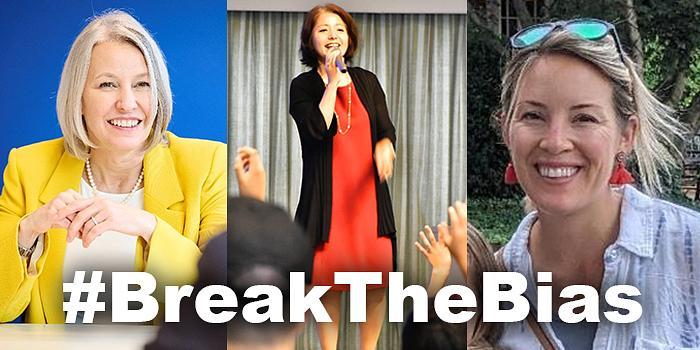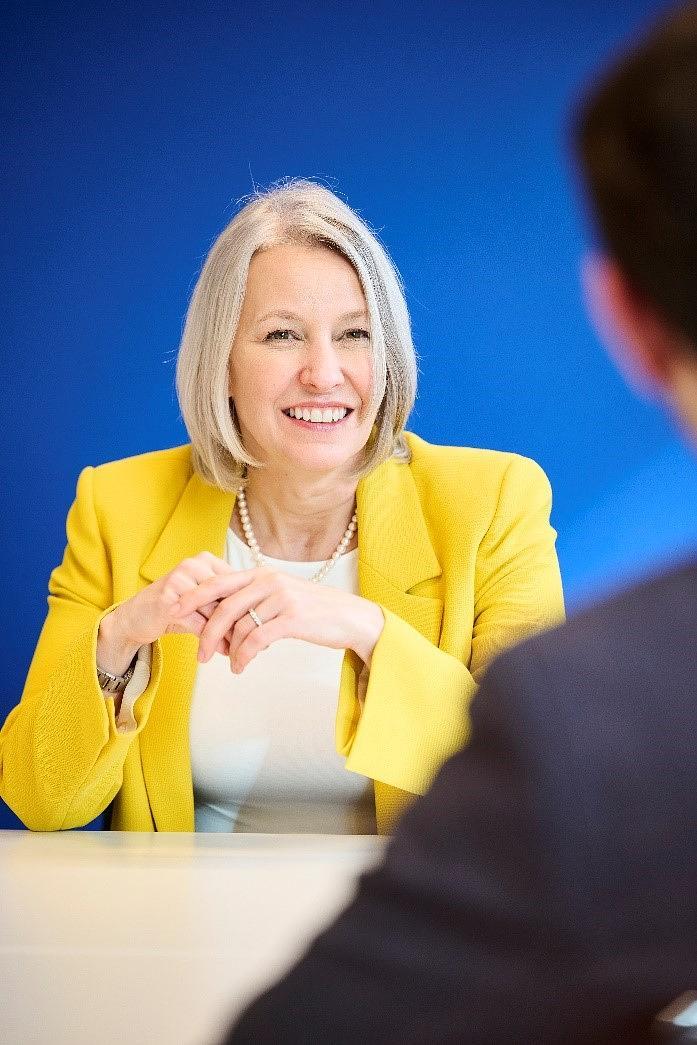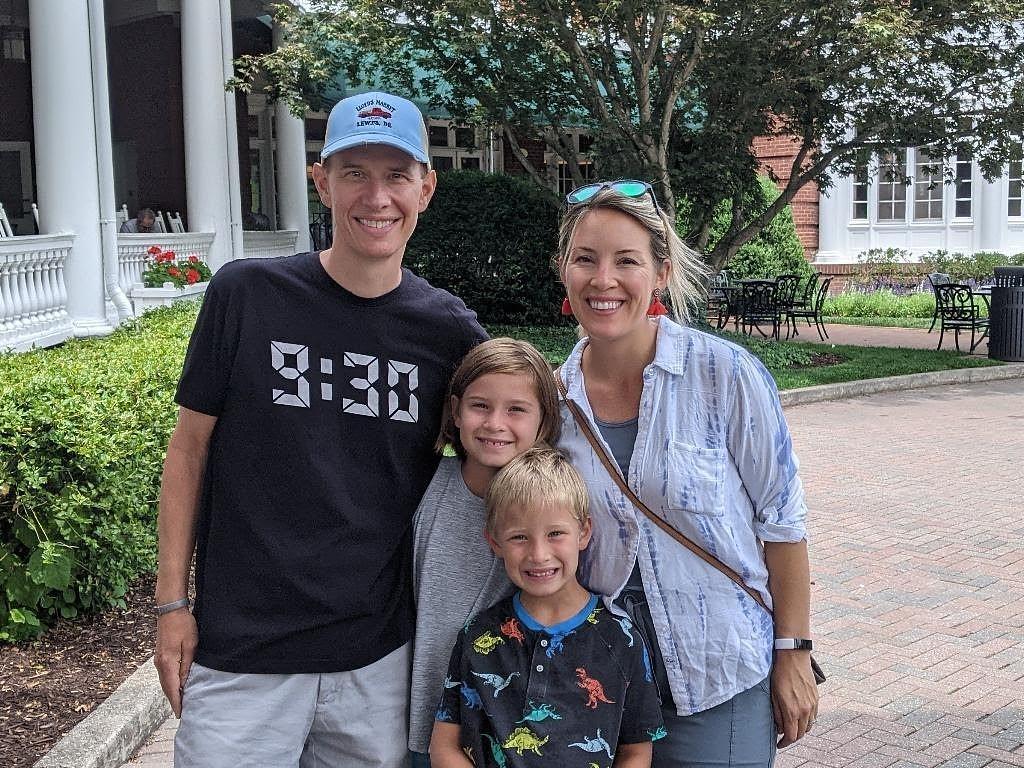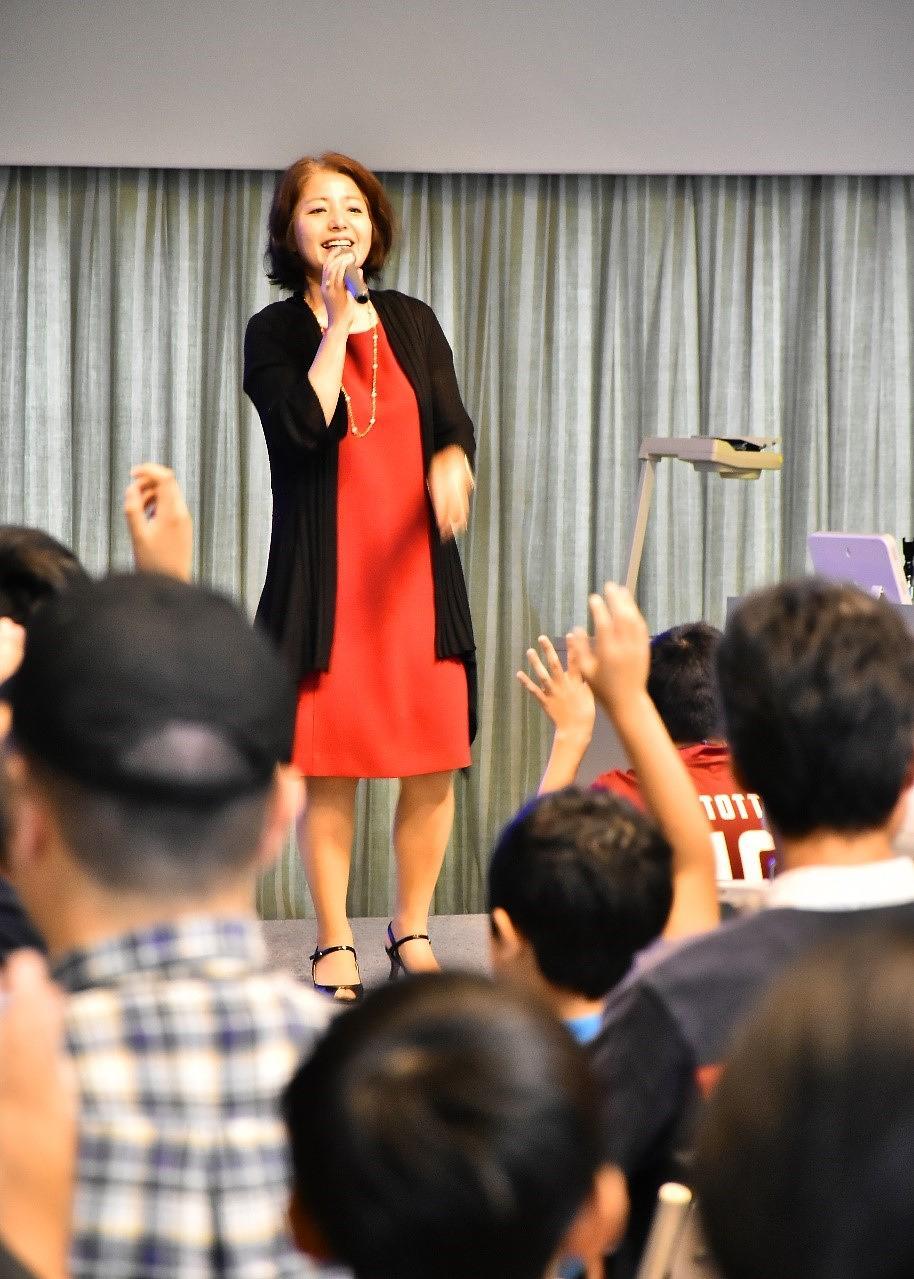How 3 Boeing Women Took the Leap and Found Success
Boeing enables women across the company to take chances and make choices that develop their career on their own terms.
Four years after starting with Boeing as an environmental lawyer, Kim Stollar had an unexpected opportunity: a rotation in Tokyo. She didn’t speak Japanese and had never been to Asia, but she took the leap and brought back three years’ worth of professional and personal growth.
“The company was willing to invest in my employee development even though I didn’t have an obvious résumé,” she said.
Since the first female employee Rosie Farrar, who stitched together linen wings for the early B & W seaplanes in 1916, Boeing has committed to giving women the opportunity to explore their passions and develop their careers. As the company continues to make progress towards achieving gender equity and inclusion for all, Stollar and other women across the company are breaking the bias by taking advantage of the right growth and development opportunities Boeing offers for their careers, and on their own terms.
For Stollar, the rotation in Japan gave her skills that she put to the test as general counsel during the creation of Global Services and several subsidiary integrations. It also gave her the confidence to transition from the Legal function into Boeing International, where she is now managing director of EU and NATO Government Affairs and leads Boeing's office in Brussels.
“If I’d applied for any of these international jobs outside of Boeing, I probably wouldn’t have gotten a second look,” Stollar said. “But that’s the fun of being here: you get to have these growth and development opportunities and experiences that diversify your expertise.”
Greta Lundeberg, who is based in Arlington, Virginia and leads International Operations and Policy for Government Operations, also has served for the last several years as an executive champion for the Potomac chapter of Boeing Women Inspiring Leadership (BWIL). Greta came to Boeing in 2014 after working at the White House National Security Council and credits mentors at Boeing for helping her grow as a leader.
“I’ve become a better and more inclusive leader by getting comfortable with bringing my role as a mom and a caregiver into my work life and engaging with my teammates about their own triumphs and challenges to better understand what drives them,” Lundeberg said. “I’ve felt supported by my leadership in opening the aperture in driving that engagement and I think our company culture benefits from it.”
At her first Boeing Leadership Meeting, she said you could count on your hands how many women were in the room. “I was definitely the only pregnant executive there.” In just six years, she said that has changed demonstratively with broader diversity and representation at the company and she feels motivated by being part of that change.
Even still, entering the workforce continues to present unique challenges for women, especially if they feel pressure to stay at home to raise their families. According to a 2021 McKinsey study, women are even more burned out than they were a year ago, and burnout is escalating much faster among women than men. One in three women considered downshifting their careers or leaving the workforce.
Miwa Kobayashi, currently director of Government and Corporate Affairs for Boeing in Japan, understands the challenges of balancing work and family commitments, explaining that if it hadn’t been for the example set by the woman who hired her in 2008, she might not have joined Boeing at all.
Wishing to start a family, Kobayashi knew it would be nearly impossible to fulfill the constant demands of her government job at the time while trying to raise children, so she quit.
Shortly after, Boeing Japan’s then-president, Nicole Piasecki, called her with a job offer as director of Government Operations.
Kobayashi said she wasn’t sure if she could do the job with a one-year-old son and no experience working for a U.S.-based company, but Piasecki — who had three boys, the youngest just six months older than Kobayashi’s son — assured her the company would support her in any way it could.
“I was surprised, and I couldn’t say no to her,” Kobayashi said, and she accepted the offer to join the team.
Today, Kobayashi’s role includes working with the Japanese government, the Japanese Civil Aviation Bureau and Boeing’s Global Engagement team to build support for the company and strengthen ties to communities and institutions across Japan.
In 2019 she also acted as president of Boeing Japan for several months while changes were being made to in-country leadership.
“When appointed as acting president, I received so many messages from employees cheering me on and saying how great it was to see a female acting president. They came to me and said it was encouraging to see a mother as a female leader.”
By Kate Everson
For comments or additional questions, please email Global Equity, Diversity & Inclusion.





